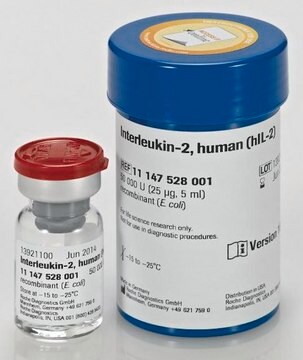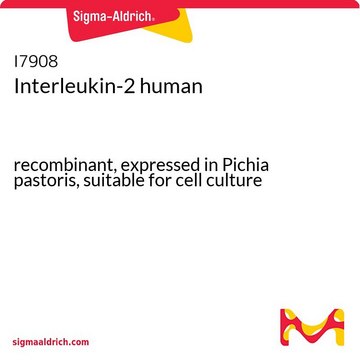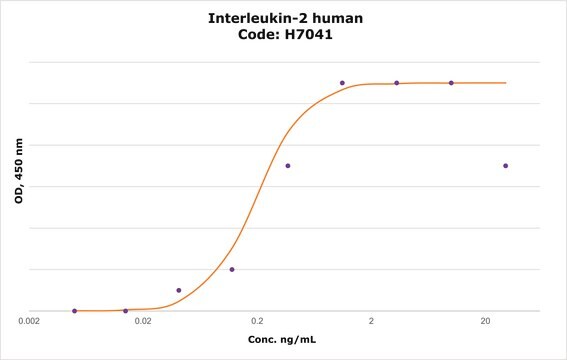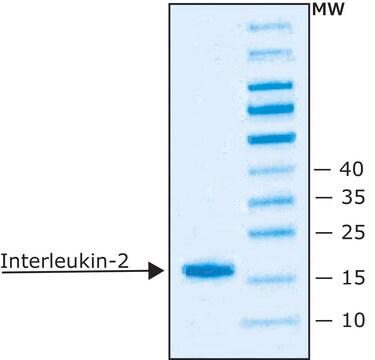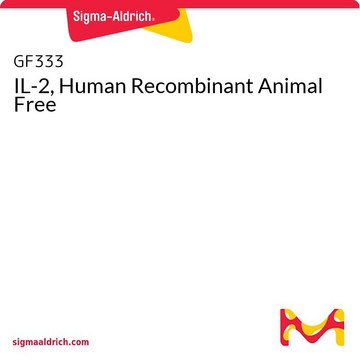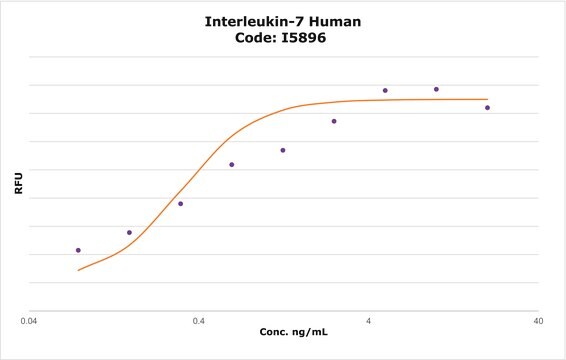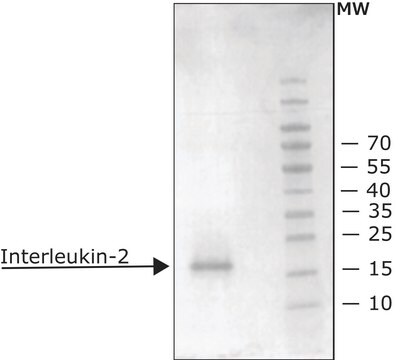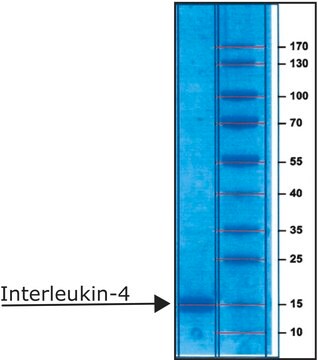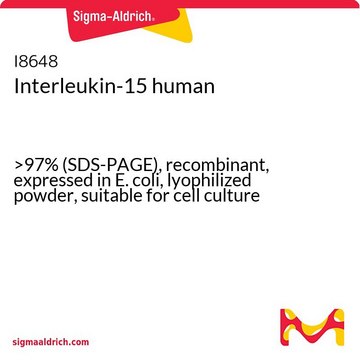I2644
Interleukin-2 human
IL-2, recombinant, expressed in E. coli, lyophilized powder, suitable for cell culture
Synonym(s):
IL-2, hIL-2, Interleukin-2, T-cell growth factor
About This Item
Recommended Products
biological source
human
Quality Level
recombinant
expressed in E. coli
form
lyophilized powder
potency
≤700 EC50
quality
endotoxin tested
mol wt
15.5 kDa
packaging
pkg of 5X10 μg
pkg of 10 μg
technique(s)
cell culture | mammalian: suitable
impurities
≤1 EU/μg
UniProt accession no.
storage temp.
−20°C
Gene Information
human ... IL2(3558)
Looking for similar products? Visit Product Comparison Guide
General description
Application
- in the stimulation of natural killer cells
- to study its ability to stimulate lymphocyte growth and prevent apoptosis
- as an antigen in enzyme-linked immunosorbent assay (ELISA), to analyse the human autoantibody reactivities in health and in type 1 diabetes mellitus
Biochem/physiol Actions
Physical form
Analysis Note
Storage Class Code
11 - Combustible Solids
WGK
WGK 3
Flash Point(F)
Not applicable
Flash Point(C)
Not applicable
Personal Protective Equipment
Certificates of Analysis (COA)
Search for Certificates of Analysis (COA) by entering the products Lot/Batch Number. Lot and Batch Numbers can be found on a product’s label following the words ‘Lot’ or ‘Batch’.
Already Own This Product?
Find documentation for the products that you have recently purchased in the Document Library.
Customers Also Viewed
Articles
The Interleukins comprise a disparate group of cytokines and growth factors that are produced by and released from leukocytes. Interleukin-1β (1L-1β) is released primarily from stimulated macrophages and monocytes and plays a key role in inflammatory and immune responses and may induce anti-tumor immunity.
Our team of scientists has experience in all areas of research including Life Science, Material Science, Chemical Synthesis, Chromatography, Analytical and many others.
Contact Technical Service